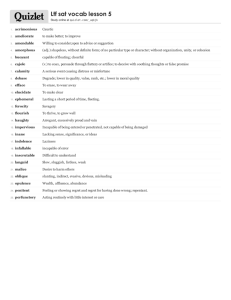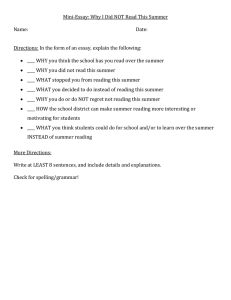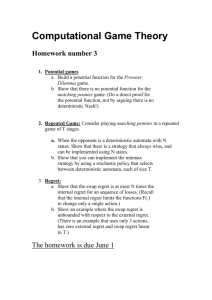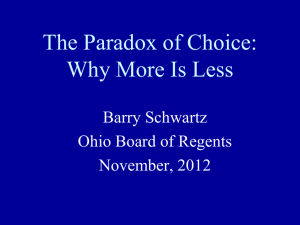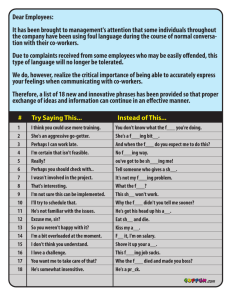Gerunds & Infinitives
advertisement
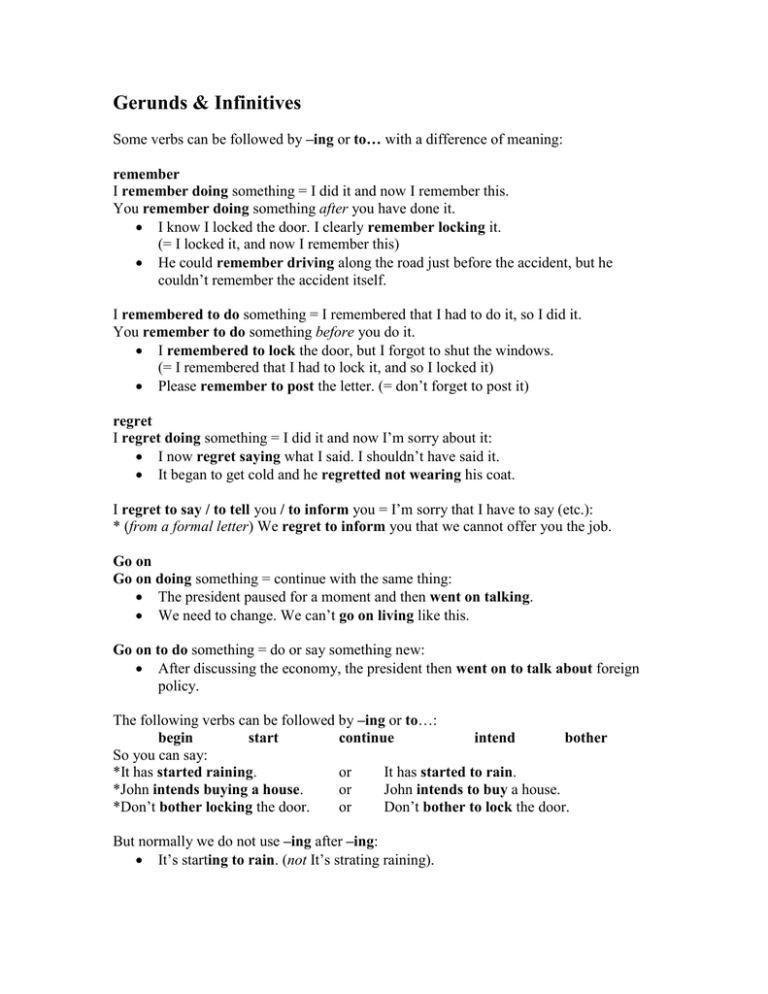
Gerunds & Infinitives Some verbs can be followed by –ing or to… with a difference of meaning: remember I remember doing something = I did it and now I remember this. You remember doing something after you have done it. I know I locked the door. I clearly remember locking it. (= I locked it, and now I remember this) He could remember driving along the road just before the accident, but he couldn’t remember the accident itself. I remembered to do something = I remembered that I had to do it, so I did it. You remember to do something before you do it. I remembered to lock the door, but I forgot to shut the windows. (= I remembered that I had to lock it, and so I locked it) Please remember to post the letter. (= don’t forget to post it) regret I regret doing something = I did it and now I’m sorry about it: I now regret saying what I said. I shouldn’t have said it. It began to get cold and he regretted not wearing his coat. I regret to say / to tell you / to inform you = I’m sorry that I have to say (etc.): * (from a formal letter) We regret to inform you that we cannot offer you the job. Go on Go on doing something = continue with the same thing: The president paused for a moment and then went on talking. We need to change. We can’t go on living like this. Go on to do something = do or say something new: After discussing the economy, the president then went on to talk about foreign policy. The following verbs can be followed by –ing or to…: begin start continue intend bother So you can say: *It has started raining. or It has started to rain. *John intends buying a house. or John intends to buy a house. *Don’t bother locking the door. or Don’t bother to lock the door. But normally we do not use –ing after –ing: It’s starting to rain. (not It’s strating raining).
